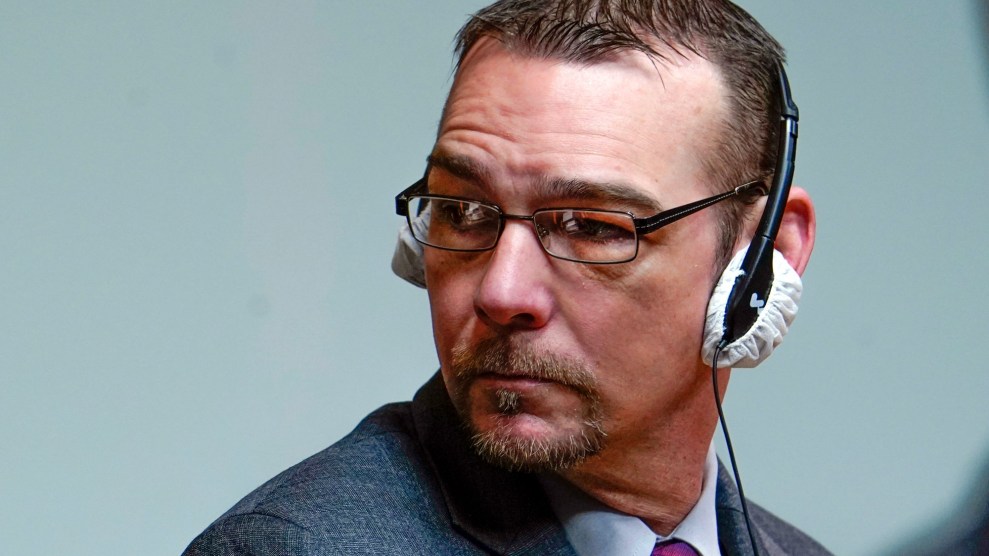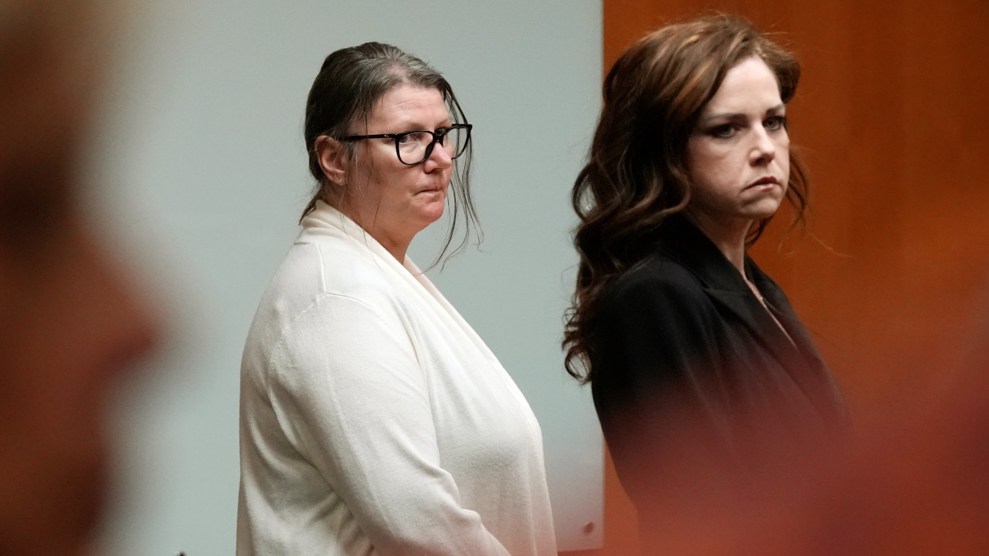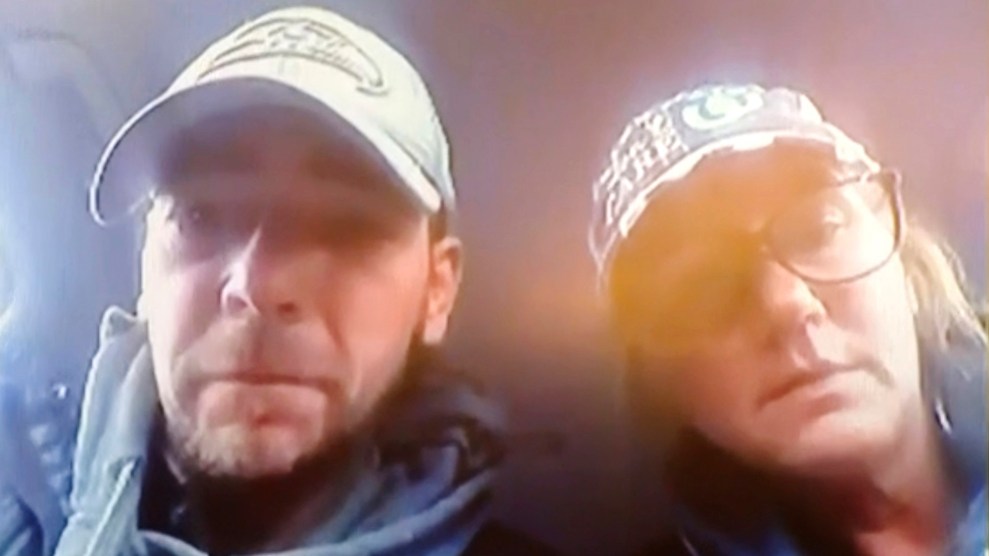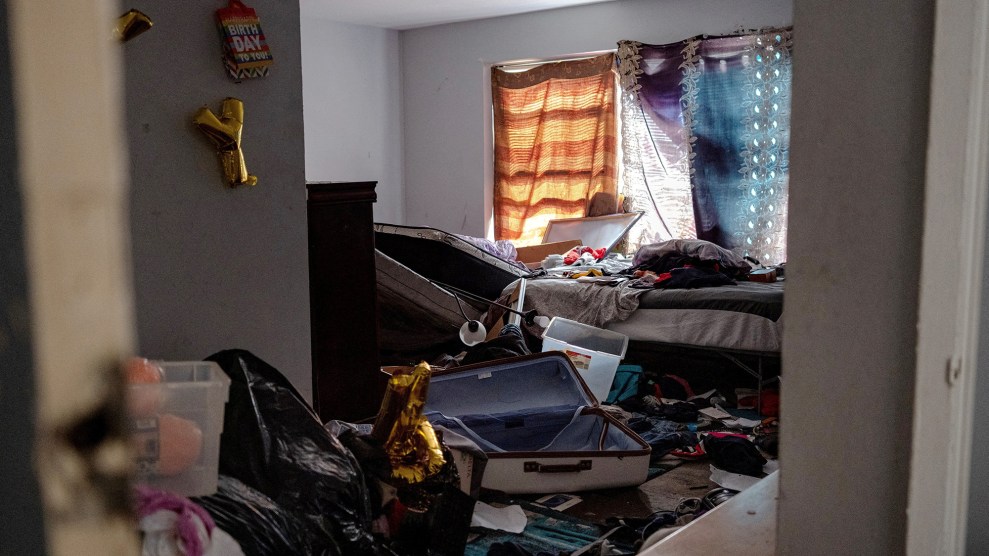
James Crumbley in court during his trial in Oakland County, MichiganMandi Wright/AP
On Thursday evening, a Michigan jury found James Crumbley guilty of involuntary manslaughter for failing to stop his teenage son Ethan from killing four of his classmates and wounding seven others at Oxford High School in 2021. The verdict follows the conviction of Jennifer Crumbley, Ethan’s mother, on identical charges early last month, making them the first US parents in history to be successfully prosecuted for a mass shooting committed by their child. Both Crumbleys will return to court in April for sentencing, which could include up to 10 years in prison.
Speaking to press Thursday night alongside the family members of the shooting victims, prosecutors praised the result as a step in the right direction. “This verdict does not bring back their children,” said local prosecutor Karen McDonald, “but it does mark a moment of accountability and will hopefully be another step to address and end gun violence.”
The Crumbleys’ behavior, both before and after their son’s crimes, was especially shocking. As my colleague Mark Follman has reported:
[The Parents] gave the pistol used in the attack to Ethan four days before he struck, failed to secure the weapon at home, and appeared to ignore an array of warning signs that their son was turning suicidal and homicidal…That culminated with violent drawings he made, found by a teacher the morning of the attack, whose captions included: “My life is useless,” “Blood everywhere,” and “The thoughts won’t stop. Help me.”
When Ethan and his parents subsequently met with a school counselor and dean that morning, just hours before the massacre, the parents did not disclose that Ethan now had access to a weapon. Nor did they agree to take him out of school and get him immediate mental health care, as the school officials had then urged.
But while prosecutors and gun safety advocates like the organization Everytown have celebrated the conviction of Jennifer and James Crumbley, others worry that the case establishes a dangerous new precedent—one with legal ramifications that will likely be felt by people quite unlike the Crumbleys. According to the legal scholars and advocates I spoke with after Jennifer Crumbley’s trial, the people likely to be subjected most often to this type of prosecution won’t be white parents like the Crumbleys, but rather parents whose children are Black or brown, poor, and living in neighborhoods plagued by gun violence:
“The principle being established here is that if a parent is deemed sufficiently neglectful and their child engages in an act of violence, we have to be thinking about the parent’s criminal liability for seeing signs and not acting on them,” says Evan Bernick, assistant professor at Northern Illinois University College of Law. “What I see in the Crumbley case is the structure of something that could very easily be applied in a way that criminalizes Black parents and kids.”
According to an analysis by the Washington Post, mass shooters are more likely to be white and male. Yet, Black children and teens are 14 times more likely than white children to die by guns. They are more likely to live in neighborhoods with the social and economic pressures that generate gun violence. Research suggests that authorities tend to assume that Black children are older and more violent than they actually are and that their parents more negligent and irresponsible than white parents. And these stereotypes already fuel rampant discrimination in the criminal legal system. This combination of factors, along with the precedent set by the Crumbley verdicts, makes it even more likely that prosecutors will seek to expand their legal tools for incarcerating Black parents.
Mass shootings are almost ubiquitous at this point. With that rage-inducing reality, it’s easy to celebrate anything that feels like a step in the right direction. But the trouble is that while prosecuting extreme cases like that of Crumbley parents might make us feel better, it can also repave the road to mass incarceration, which history has shown does not make us safer or end cycles of violence.
“These particular unsympathetic people are how the system gets you,” Bernick told me. “That’s how it justifies its application and severity to cases that look nothing like this and you’re not necessarily going to be watching them.”


















